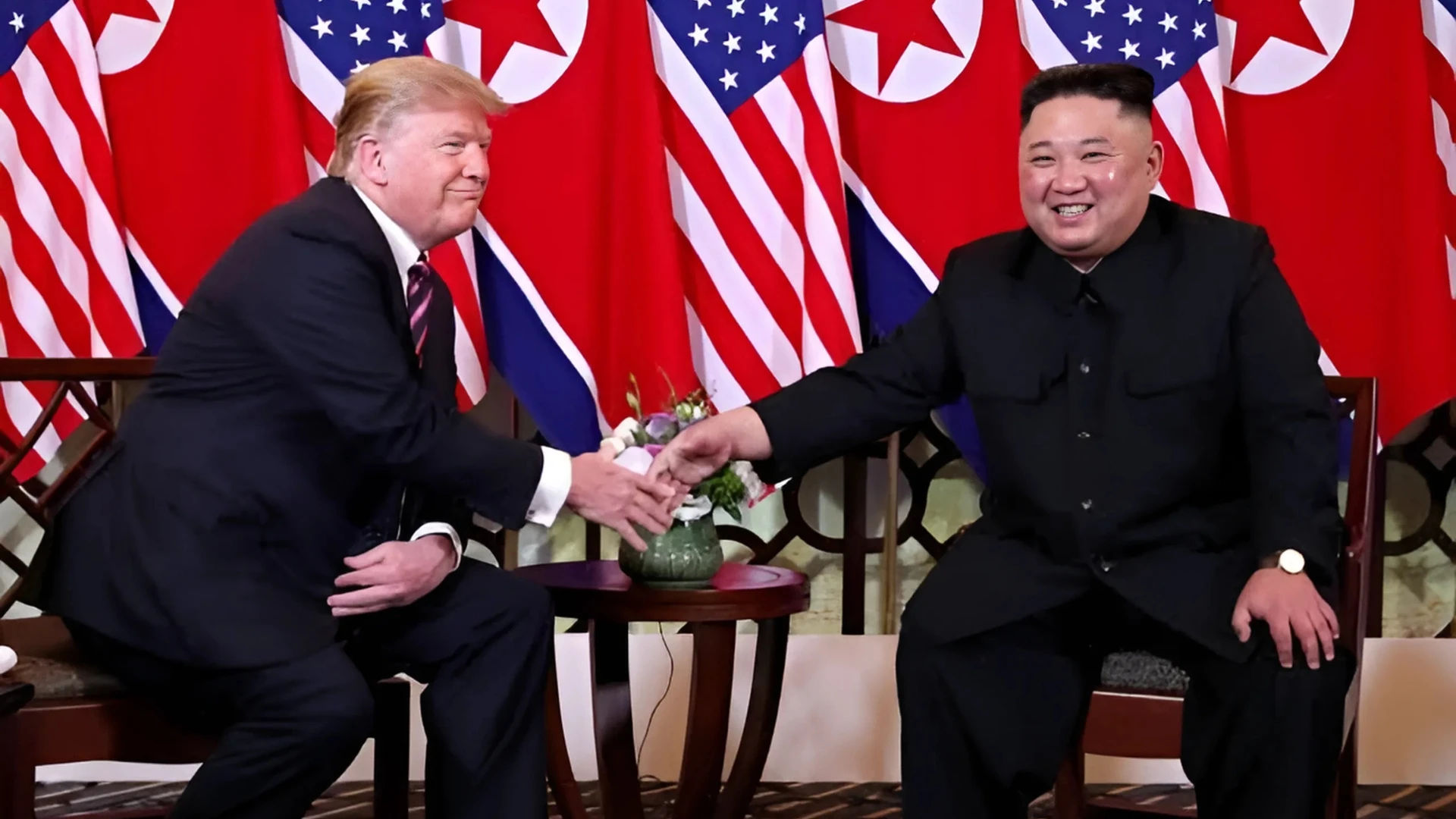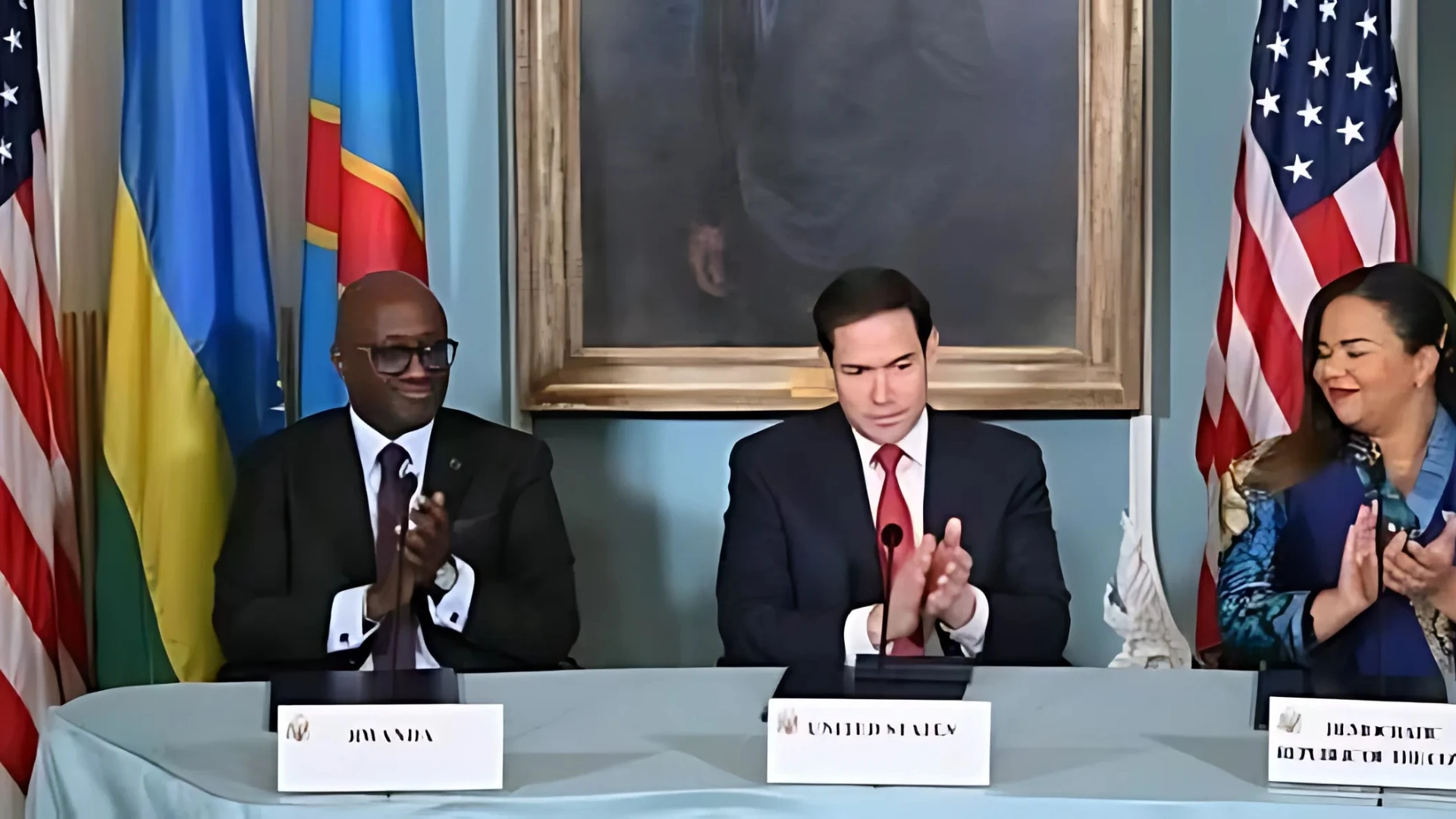Beijing: Tensions between the United States and China escalated on Tuesday after Beijing swiftly responded to new U.S. tariffs with countermeasures of its own, reigniting a trade conflict between the world’s largest economies.
The latest dispute was triggered by President Donald Trump's decision to impose a 10% tariff on all Chinese imports, a move he justified as a response to China's failure to curb the flow of illicit drugs into the U.S.
China retaliated within minutes, announcing new duties on American exports.
The Chinese Finance Ministry declared that a 15% tariff would be imposed on U.S. coal and liquefied natural gas (LNG), while crude oil, farm machinery, and certain automobile imports would face a 10% levy. These tariffs are set to take effect on February 10.
In a further blow to American businesses, Beijing launched an antitrust investigation into Google’s parent company, Alphabet Inc., and placed PVH Corp., the owner of Calvin Klein, along with biotech firm Illumina, on its "unreliable entities list." Additionally, China introduced export restrictions on crucial minerals such as tungsten, tellurium, ruthenium, and molybdenum, citing national security concerns. These materials are essential for clean energy technologies, and China dominates global supply chains in this sector.
While Trump had momentarily postponed his plans for steep tariffs on Mexico and Canada in exchange for concessions on border security and crime enforcement, no such leniency was extended to China. A White House spokesperson confirmed that Trump would not be speaking with Chinese President Xi Jinping until later in the week.
The renewed trade war comes years after Trump first launched a tariff battle with China in 2018, aiming to address the trade imbalance between the two nations. Although a 2020 deal required China to purchase an additional $200 billion worth of U.S. goods, the agreement was disrupted by the COVID-19 pandemic. According to recent Chinese customs data, the trade deficit with the U.S. has since widened to $361 billion.
Analysts warn that this new phase of tariffs could lead to further economic uncertainty. Oxford Economics revised its forecast for China’s economic growth downward, citing the risk of escalating trade barriers.
Trump also signaled the possibility of additional tariffs if Beijing fails to address the fentanyl crisis. “China hopefully is going to stop sending us fentanyl, and if they’re not, the tariffs are going to go substantially higher,” he warned on Monday.
China, however, maintains that the fentanyl crisis is a domestic issue for the U.S. and announced plans to challenge the new tariffs at the World Trade Organization while keeping the door open for negotiations.
Stock markets in Hong Kong reacted negatively to China's retaliatory measures, with investors wary of prolonged economic instability. “Unlike with Canada and Mexico, reaching an agreement between the U.S. and China appears far more complex due to both economic and political challenges,” said Gary Ng, senior economist at Natixis in Hong Kong. “Even if some issues are resolved, tariffs could remain a recurring source of market volatility this year.”
Meanwhile, businesses and governments in Canada and Mexico expressed relief over their temporary reprieve from tariffs. Canadian Prime Minister Justin Trudeau and Mexican President Claudia Sheinbaum both confirmed commitments to strengthen border enforcement in response to Trump’s demands for tougher immigration and drug control measures.
As part of the agreement, Canada will deploy new personnel and technology to monitor its border with the U.S. and enhance efforts to combat organized crime and drug trafficking. Mexico, in turn, pledged to station 10,000 National Guard members along its northern border to curb illegal migration and smuggling. The U.S. also committed to working with Mexico to prevent the trafficking of high-powered weapons.
Trump expressed satisfaction with the agreements, stating on social media, “As President, it is my responsibility to ensure the safety of ALL Americans, and I am doing just that. I am very pleased with this initial outcome.”
While businesses in Canada welcomed the pause in tariffs, uncertainties remain for other U.S. trading partners. Trump has hinted at targeting the European Union next but has not yet outlined a specific timeline. EU leaders, meeting in Brussels, warned they would respond if Washington imposed new tariffs but emphasized the importance of diplomacy.
Trump suggested that the United Kingdom, which exited the EU in 2020, might be exempt from future trade measures.
Despite acknowledging that tariffs could lead to short-term economic difficulties for American consumers, Trump defended his policies as necessary steps to curb illegal immigration, combat drug trafficking, and boost domestic industries. However, experts caution that the tariffs could push Canada and Mexico into recession and lead to stagflation in the U.S., a combination of stagnant growth, high inflation, and rising unemployment.








